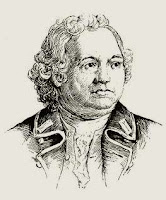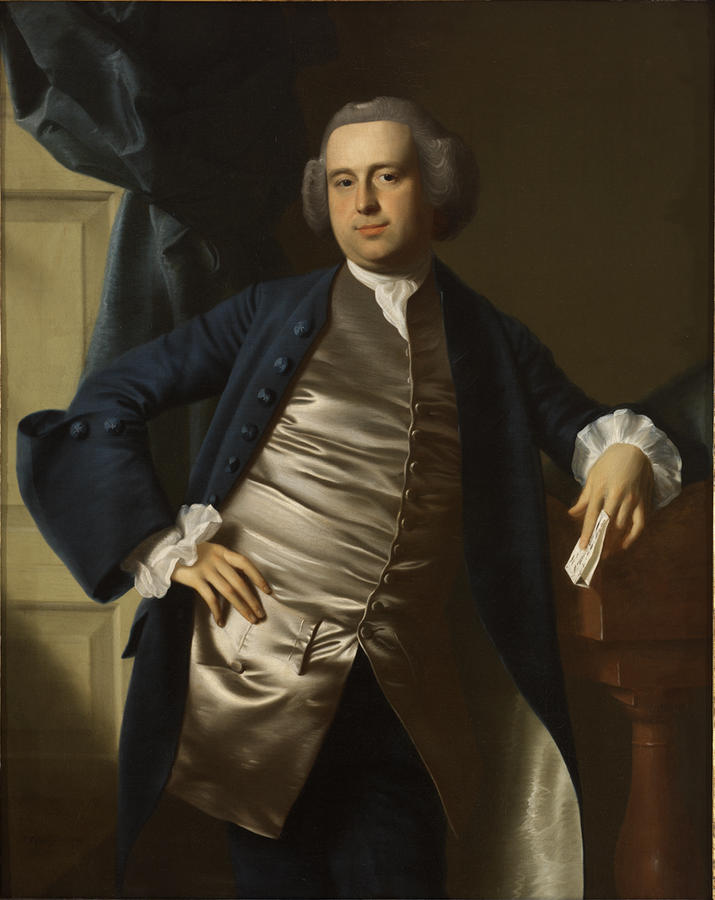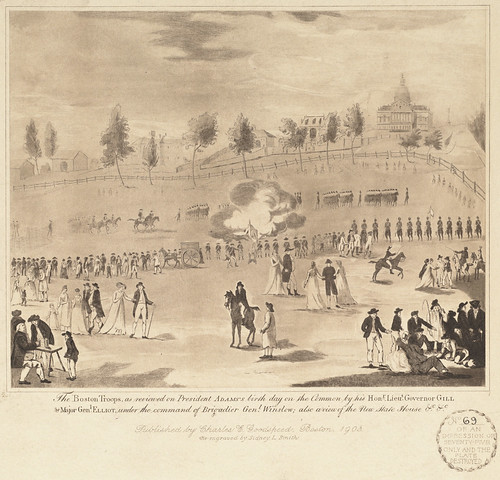“Satisfied that he was intitled to a large allowance”
 After listing more than £3,600 of property lost on Noddle’s Island in May and June of 1775, Henry Howell Williams presented that document to the Continental Congress’s agent in Boston and asked to be paid back.
After listing more than £3,600 of property lost on Noddle’s Island in May and June of 1775, Henry Howell Williams presented that document to the Continental Congress’s agent in Boston and asked to be paid back.
That agent was Royal Flint (1754–1797), from Windham, Connecticut. A Yale graduate, he became a Connecticut paymaster in 1776 and eventually a Continental assistant commissary-general under Jeremiah Wadsworth. He had accompanied the army command to Valley Forge and Morristown, New Jersey. Flint was thus used to dealing with paperwork and property.
In 1786 the Congress appointed Flint to settle Continental accounts in New England, laying out procedures for him to follow. (In a possible conflict of interest, he was also starting to speculate in western lands, an enterprise that took up all of his time after 1790 and soon broke him.)
It appears that Williams approached Flint in 1786. Flint explained that his job was to settle outstanding bills with military contractors. Even if Williams’s livestock did ultimately benefit the army, he didn’t qualify. Instead, Flint advised Williams to ask for special consideration from the small Confederation bureaucracy.
On 1 Apr 1787 Williams got Flint to write that out in a certificate now shared by the Massachusetts Historical Society. Flint told the Congress, then meeting in New York:
soon after I entered upon the duties of my office as Commissioner for Settling public accounts in this State, the annexed claim was presented to me for allowance by Mr. Henry H. Williams.That wasn’t a ringing endorsement, but Flint did say that Williams deserved some compensation.
As some part of it was for articles that were destroyed & which were productive of no advantage to the United States; and as none of it was Supported by regular vouchers, I suspended my determination upon it ’till I had obtained the best evidence that could be found.
The charges for the loss of Household furniture and whatever was received merely as damage could not be admitted at this Office; therefore I did not so critically investigate the proofs which were to establish that part of the Account. But that part of the claim which related to supplies of provision, or any other articles which were applied for the benefit of the United States, could be admitted, if the evidence of the fact was Satisfactory.
Under this idea, I suggested to Mr. Williams the propriety of stating in a Separate account such articles as were applied for the use of the Army; and to produce his evidence both with respect to the value & appropriation of them. From a great concurrence of testimony, he established the general fact, that his property was taken at the time & in the manner set forth in his memorial.
We also made it evident that the horses taken were turned into public Service; whether for this State or the United States, some of the witnisses were at a loss. The Honorable Moses Gill Esqr. & the late Major Genl. [Israel] Putnam informed me, they were actually applied for the United States. The number & value of the horses was not ascertained with any precision, but it was well proved that the horses were valuable & the number considerable.
It was proved to me that some Cattle & Sheep were slaughtered for the use of the Army, but the quantity was altogether uncertain.
Upon the whole, as this claim was for so large an amount, & the evidence in support of it not precise, I recommended to Mr. Williams to lay the affair before the Commissioners of the Treasury. I was however Satisfied that he was intitled to a large allowance & should have admitted that part of the account which related to articles appropriated to public use, with some deductions.
But the claimant preferred laying a memorial before the Honorable Congress under the expectation that the whole claim will be admitted. It must be Settled by general estimation. The nature of the transaction was Such as to exclude all possibility of accurate testimony. The evidence is satisfactory as far as it goes. It is perhaps as good as the nature of the case will admit.
That was enough for Henry Howell Williams, who submitted his request for the whole £3,600+ to the Congress.
TOMORROW: A confederated response.
(Israel Putnam was still alive in 1787, so “the late Major Genl. Putnam” must refer to his having retired from the army.)








